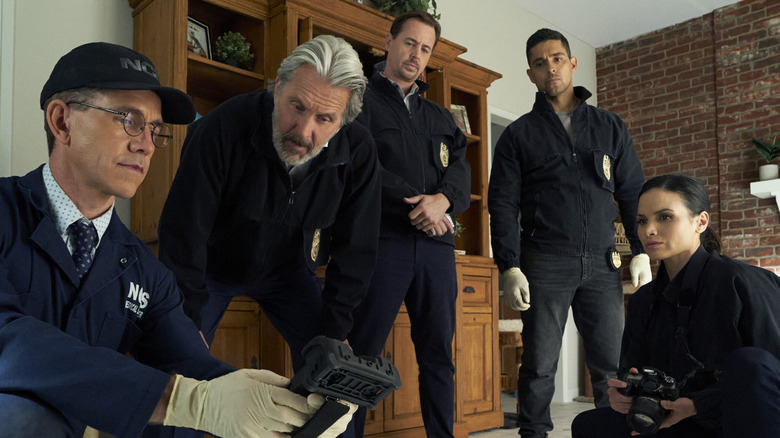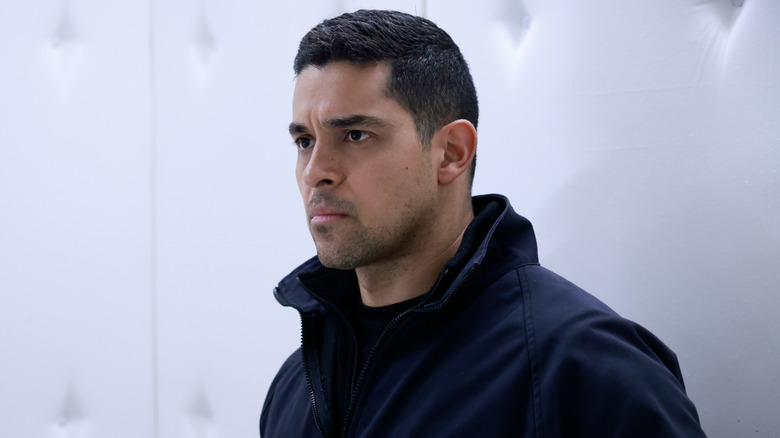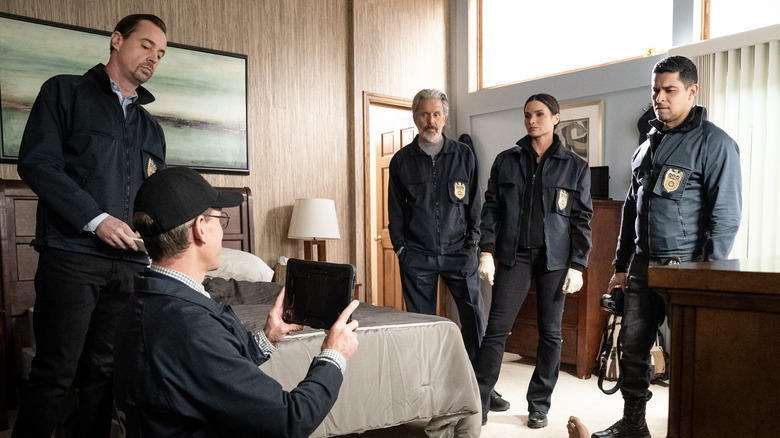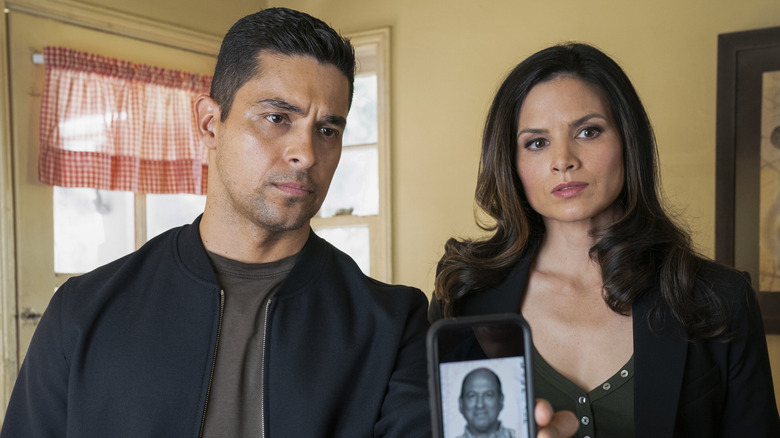NCIS Needs To Stop Resurrecting The Dead With AI
"NCIS" may not get its scientific calculations 100% right, but most of the time, the general accuracy of its plotlines matches what you'd encounter in the real world. Unfortunately, the show's developed one gigantic blind spot over the past few seasons. Its use of modern technology, particularly AI, tends to put its detectives in the worst light possible, and it also shows off a lack of understanding of the subject in general – especially when resurrecting dead victims to speak about their lives as if they are actual, breathing people.
Fudging one's science here and there is just fine, but when the show uses its creative license to show AI doing what it absolutely cannot do, audiences are liable to snicker and flip the channel. Worse, "NCIS" has failed to present a strong point of view that fans might latch onto, which makes its wishy-washy stance on AI as both the wave of the future and something horrifying less than impressive.
The drama definitely and clearly doesn't intend to be harmful in the way it uses AI as a plot point. But "NCIS" desperately needs to ameliorate its discussion of the technology if it wants to restore anything resembling credibility when addressing it. Here's how the series ought to fix up the logic gaps if it wants to portray AI correctly.
Season 19 shows Nick and the series' understanding of AI at their worst
In "Collective Memory," Episode 9 of Season 19, "NCIS" uses AI technology to generate a hologram that serves to resurrect Sandra Holdren (Stepfanie Kramer), the episode's victim du jour. Nicholas Torres (Wilmer Valderrama) and Jessica Knight (Katrina Law) use the information given to them by the hologram to suss out the person responsible for killing the financial advisor.
But that's not how AI technology — or even a hologram — works at all. To produce a hologram of Holdren, the person running whatever visual engine was used to make the imagery had to consult actual human sources to feed knowledge about her life into the program. In other words, there's no need to use a hologram to produce further information about Holdren if you already have the raw material that went into the tech at your disposal. You can directly interview the people who gave you the information instead of adding this extra work to the pile. It's also just plain uncomfortable and unnecessarily creepy to stuff words into the mouth of a dead woman.
Even worse, the story brings out the very worst in Nick's technophobia. He's actively creeped out by the hologram and is crudely dismissive toward the tech types he has to probe for the case, making him come off as reactive and ultimately providing "NCIS" with its worst Season 19 storyline.
Season 21's take on the subject isn't any better
AI once again surfaces as subject matter in "Strange Invaders," from Season 21. The episode sees the team investigate the strange death of Elliot Greene (Iman Crosson), a Navy pilot whose body bears unusual wounds. The team is divided on what might have caused them and even considers the possibility that extra-terrestrial life might be the culprit here — mostly because Greene was not silent about his encounter with an aircraft of undeterminable origin.
It turns out that Greene had some negative connections to a congresswoman named Shirley Ives (Mandy Levin), who has a financial stake in a company that creates AI profiles of the dead, including dead children. Once again, AI does things that it cannot currently do in the real world – and we're subjected to the sight of a dead child brought back to life by computer programming. This adds another uncomfortable layer to the situation, though at least here it's better explained than it is in Season 19, with developing technology providing a perfect cover.
NCIS should put more thought into its AI-related plots
While getting fanciful with technology sometimes happens, "NCIS" is a solid procedural. So unless it's something that has a real-world basis, the show shouldn't be striking out into speculative future technology — especially when said future technology involves mining the dead's existing personalities and physical appearances. At the bare minimum, unless the series wants to delve into "James Bond"-style inventions, it shouldn't go beyond what's already been established as feasible in reality.
It's also just plain gross to have to think of the dead being approvingly resurrected through AI. Though this is happening in the real world — either through chat programs or via digitized footage of performers being projected onto a stage to give a "virtual" performance — the "NCIS" take on the material is both inaccurate to reality and formless of stance. With that in mind, since one of the top 3 things fans want to see happen in future "NCIS" installments includes healthier relationships between the characters present, perhaps it would be best to focus on those — and not on anything too tech-based.



